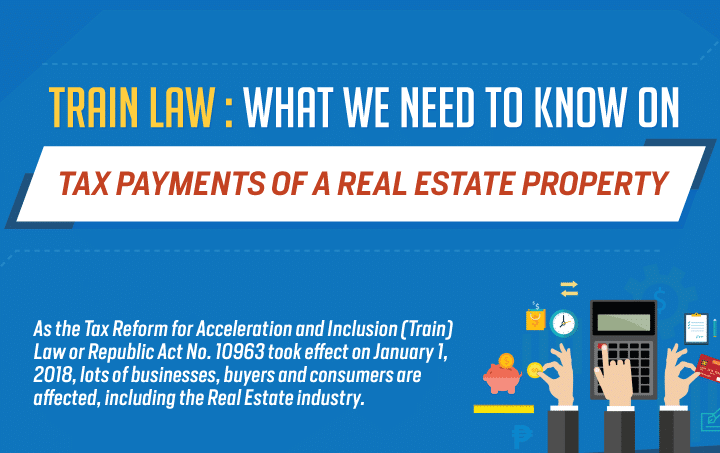The Philippines’ recent tax reform policies have caused massive waves of changes to the entire country. While the newly implemented taxation system delivered additional tax duties to products and other types of services, it also offered a tax relief for the majority of employees … [Read more...]
TRAIN: What You Need to Know about the Tax Policies for Estate Tax and Real Estate Property
The early part of 2018 marked a monumental event in the Philippine taxation system’s history after the president approved and implemented the first of the many packages that are set to promote socioeconomic transformation in the country: the Tax Reform for Acceleration and … [Read more...]
TRAIN: What are Included in The Philippine Tax Reform That Will Be Implemented in 2018?
One of the most important sources of a nation’s revenue comes from taxes - and achieving a highly strategic taxation system can make a huge difference especially for developing countries and emerging economies like the Philippines. It was only recently when President Rodrigo … [Read more...]
Train Law: What We Need to Know on Tax Payments of a Real Estate Property (Infographics)
Early this year, the Philippines government has enacted the Tax Reform for Acceleration and Inclusion (TRAIN) law – a reform initiative that is said to be instrumental to the poverty-reduction and economic development goals of the country. This newly-implemented law has a far and … [Read more...]
How to Reduce Your Business Income Tax by Increasing Your Generosity
So you want to pay less income tax from your business? Tax evasion is illegal, thus, I never recommend it to anyone. But tax avoidance is not. And if you will do it with good faith or with an intention to help people, tax avoidance can be a great way to minimize your business' … [Read more...]
Business Taxes in the Philippines
Business taxes in the Philippines can either be Value Added Taxes (VAT) or Percentage Taxes. Furthermore, an Excise Tax can also be imposed on certain taxpayers who are in the course of trade or business as an addition to VAT. Unlike an income tax, which is based on the … [Read more...]




